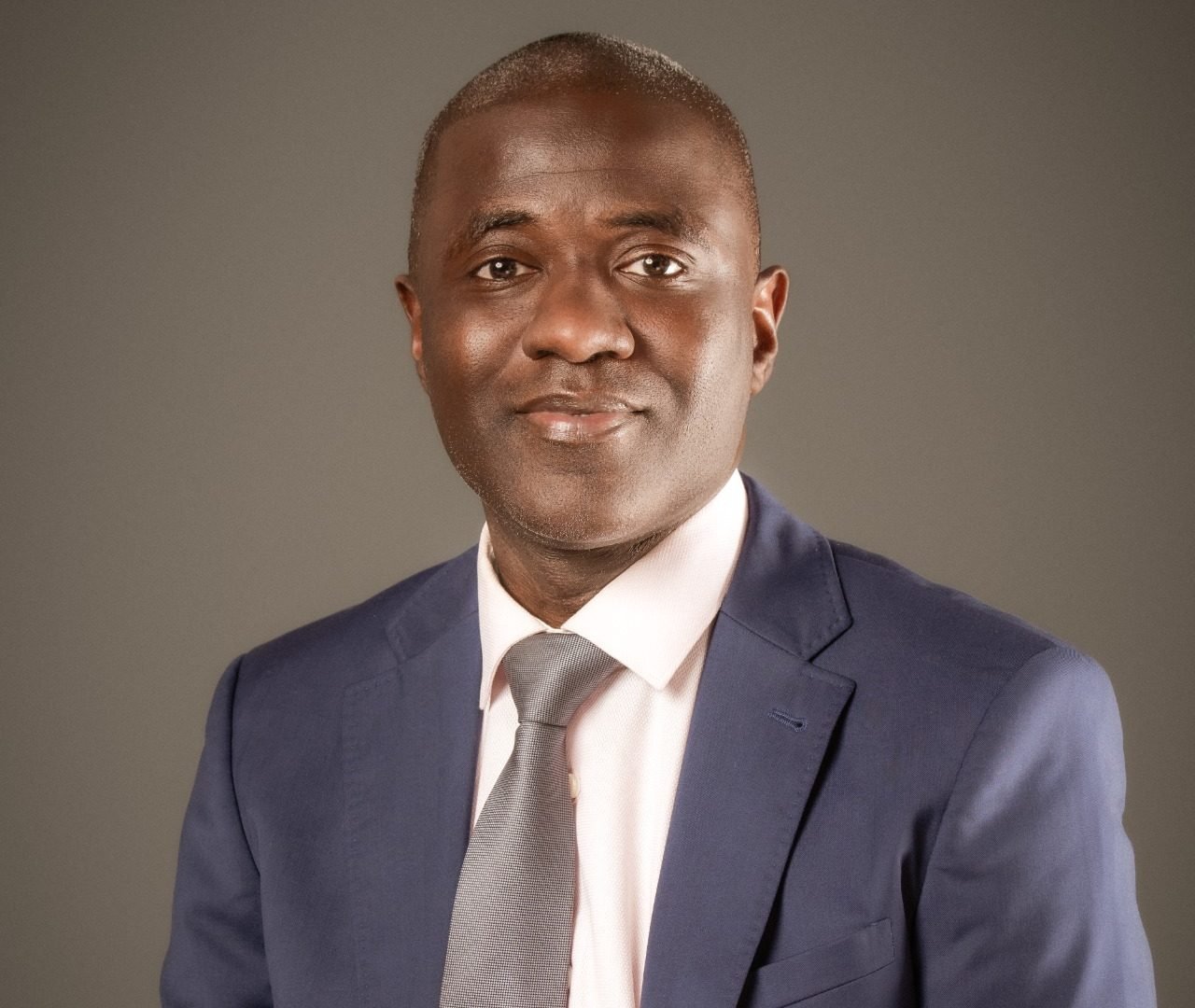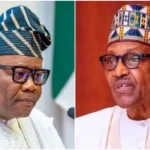By Okoh Aihe
On a day that the Nigerian Communications Commission (NCC) called a Roundtable on Broadband with the various industry stakeholders, I couldn’t be there but was connected virtually through the same technology that was enjoying appreciable focus and some kind of understandable admiration because of its near infinite possibilities.
I had to demonstrate that the future of work has been here with us and, like the Executive Vice Chairman (EVC) of the Nigerian Communications Commission (NCC), Dr Aminu Maida, said in his presentation, those who miss the point will be left behind by the rest of the world that seems to be in a hurry to achieve greatness. And really, I totally enjoyed myself, following every every little detail of the discourse apart from the tea breaks and the fraternal camaraderie on the sidelines.
Broadband is worth all the attention. The world has found a new way to live, and there is no kidding about it. It holds the magic wand to 21st century living, where prosperity lies in data, connectivity, and human potential.
“Pipelines of oil are giving way to pipelines of fibre,” was the way Maida captured unfolding developments.
How does the holy book put it? “Old things have passed away; behold, all things have become new.”
Broadband is the new thing. There were the days of steam engine, the days of rail, and the days of electrification, when nations who possessed them surged ahead. But in today’s world, data, broadband, and AI are the new engines, Maida said, those who seize the moment prosper, hesitation carries a heavy cost, he warned.
The Roundtable on Improving Broadband Connectivity and Safeguarding Critical National Infrastructure, organised by the regulator, attracted industry experts and professionals, operators, equipment vendors, the World Bank, Office of the National Security Adviser (ONSA), the Governors Forum, and a host of other stakeholders. There was the need for a discussion and, thankfully, the regulator had the most auspicious opportunity to speak to the right gathering.
Maida’s paper provided the right platform for a major discourse. He made a case for the sector by serving up the efforts of the Nigerian Government and the regulator which has emboldened them to ask investors to trust the telecom ecosystem again with fresh investment. The testimonial is encouraging.
For instance, under the Bola Tinubu administration, telecommunications infrastructure has been declared National Critical National Infrastructure, attracting special protection by the Law. Dr Bosun Tijani, Minister of Communications, Innovation and Digital Economy, is pursuing the ambitious targets of the National Broadband Plan (2020-2025). The Plan sets a clear path to achieve 70 percent penetration by the end of 2025 and to deploy 90,000 kilometres of the fibre optic backbone infrastructure across the country. Maida informed the NCC was also working within the vision to enable the minister achieve his plan and extend broadband technology to a larger segment of the population. Equally the NCC is working with ONSA and the Governors to achieve more results.
The story of broadband is like the proverbial elephant that is seen from different angles by different people and perceived differently. Those at the conference venue at Mbora, Abuja, knew this as much but the exigent need was how to take the technology to the various ends of the country. A campaign for the technology wasn’t necessary. Clearly more understanding was needed and this was demanded from stakeholders gathered at the Roundtable and even beyond.
August 2025, Nigeria achieved broadband penetration of 58.81 percent with over 180m people having internet connection. This is some distance to the 70 percent projected by the minister but an effort has been made. However more deployment is encouraged because research has shown that 10 percent increase in broadband penetration can drive approximately 1.38 percent GDP growth in developing economies. Obviously 20 to 30 or 40 percent would boost more exponential growth, create new jobs, new services and innovation.
Rwanda and India are very convenient examples here. After structured investment in backbone fibre and digital governance, Rwanda has positioned itself as an African hub for digital services. In the same vein, India’s outsourcing and IT Services industry is worth over $240bn. Obviously, there are overwhelming advantages for a fully built out broadband ecosystem.
Flaunting what they stand to benefit, Maida encouraged the governors to take full advantage of the efforts at the federal level to support broadband deployment in their domains. Previously, the regulator campaigned for the reduction of the prohibitive Right of Way (RoW) fees which discouraged service providers from fibre optics deployment. While the Nigerian Governors Forum would agree to a capped rate of N145 per linear meter, the regulator at the Roundtable canvassed for a complete waiver, recommending for other states to emulate Adamawa, Bauchi, Enugu, Benue, Zamfara and a few others that have completely waived the fees.
What do they stand to benefit? Engr Edoyemi Ogoh, Director, Technical Standards and Network Integrity at the NCC supplied the answer. Increased fibre deployment in states will lead to the following:
Enhanced Connectivity and Reliability – provides higher bandwidth and stable networks, resistant to interference, enabling rollout of 5G and smart city initiative for improved public service;
Promotion of Digital Inclusion and Affordability – fibre reduces connectivity costs and bridges digital divide;
Economic and Investment Advantages – state-level fibre expansion attracts foreign direct investment eg – WB SABER program, stimulates digital economies and aligns with national plan for 90,000 kilometres of deployment.
So, why was a Roundtable on Broadband necessary if all these advantages are there for the taking by the states? There is the need to tell the flipside of the story which is not so salutary. Maida rolled out a tranche of data that was very frightening. Sometimes I try to enjoy my myopia when I say that in this part of the world we have little respect for data. Or how would a minister take umbrage over a simple question, how much does it take to construct a kilometre of road in the contract you awarded? For this, Rufai Oseni has committed a crime against an imperial minister for doing his work as a journalist and the minister who doesn’t know the cost of a kilometre of road should wallow in a gratuitous reverie in office. We simply fear what data stands for!
But not at the NCC. While it can be aggregated from the presentations that ONSA and the entire security apparatus have made commendable progress in confronting threats to telecommunications infrastructure, Maida stated however that between January and August 2025, Nigeria recorded 19,384 fibre cut incidents, 3,241 cases of equipment theft, and 19,000 cases of denials of access to telecom sites.
Why one would run to the frightening conclusion that it is sheer miracle that the sector is still functioning, Engr Gbenga Adebayo, Chairperson, Association of Licensed Telecommunications Operators of Nigeria (ALTON) would add salt to an already troubling situation, when he said during a Panel Session that stealing of telecom equipment is an organised syndicate whose operators simply move from state to state. Sometimes, the dare-devil criminals would take a truck with a built-in crane to a telecom site and move away the generators. That doesn’t happen within minutes. In some situations, the security forces were helpless because of challenging circumstances.
As the Roundtable progressed last week, frontline service provider MTN suffered cable damage in Abuja and services were severely impaired. It was yet another proof of why conversations must be ongoing to protect the health of the sector.
It is gladdening that actions are converging to bump the sector to a new level with fresh opportunities and possibilities. It is good that some governors are wisening up to become part of the new world that broadband enables by taking actions that protect and promote the sector.
Maida said that strategic regulatory intervention has significantly strengthened investor confidence in the Nigerian telecommunications sector, which has encouraged operators to make a collective commitment to invest over $1bn to expand broadband coverage and capacity nationwide.
The ultimate expectation however, is that collective actions by the various stakeholders will attract more investment to the industry and change the broadband narrative from projection and expectations to a new world of possibilities and services provisioning that can once again arrest the attention of the global community.



























